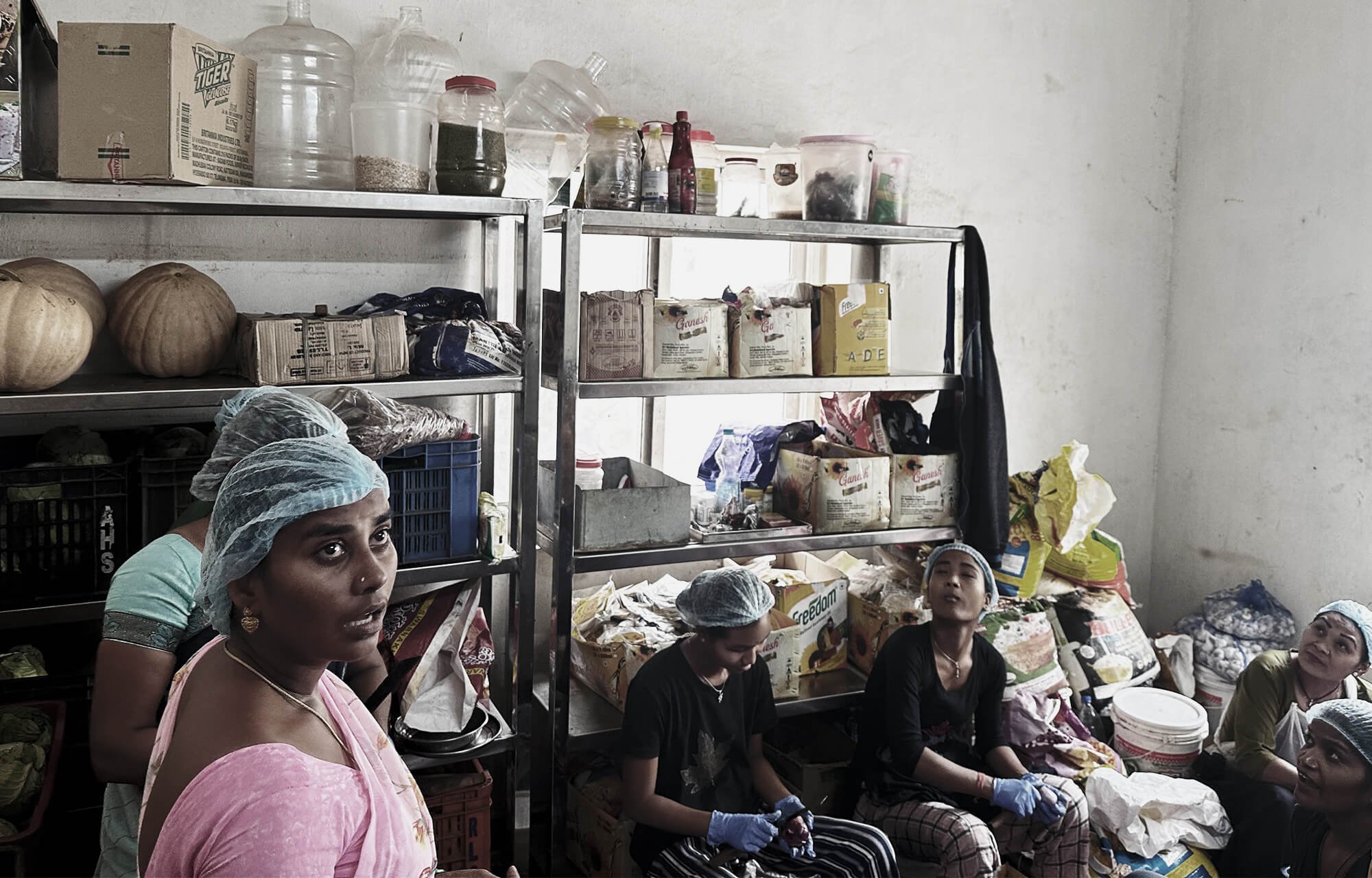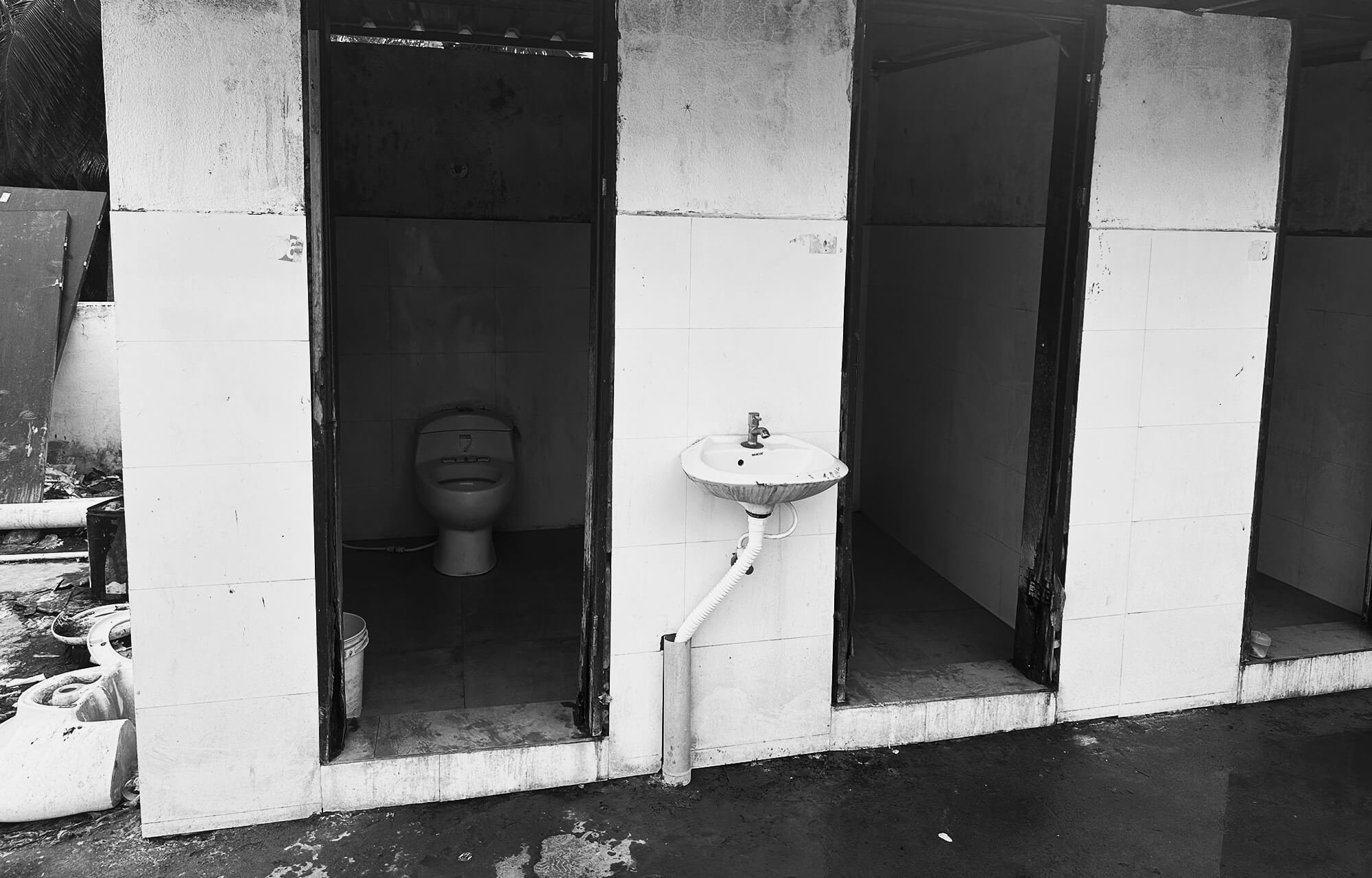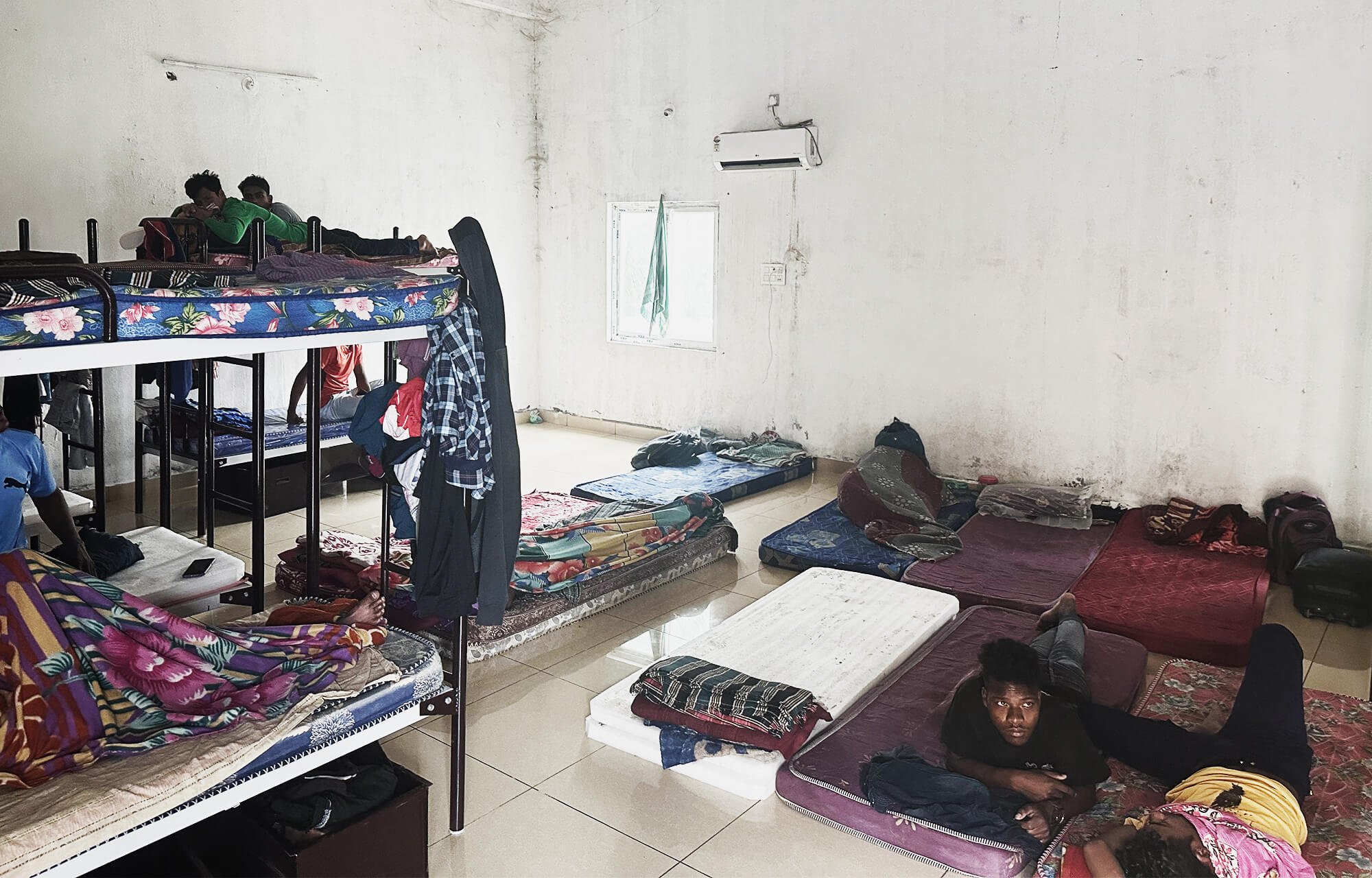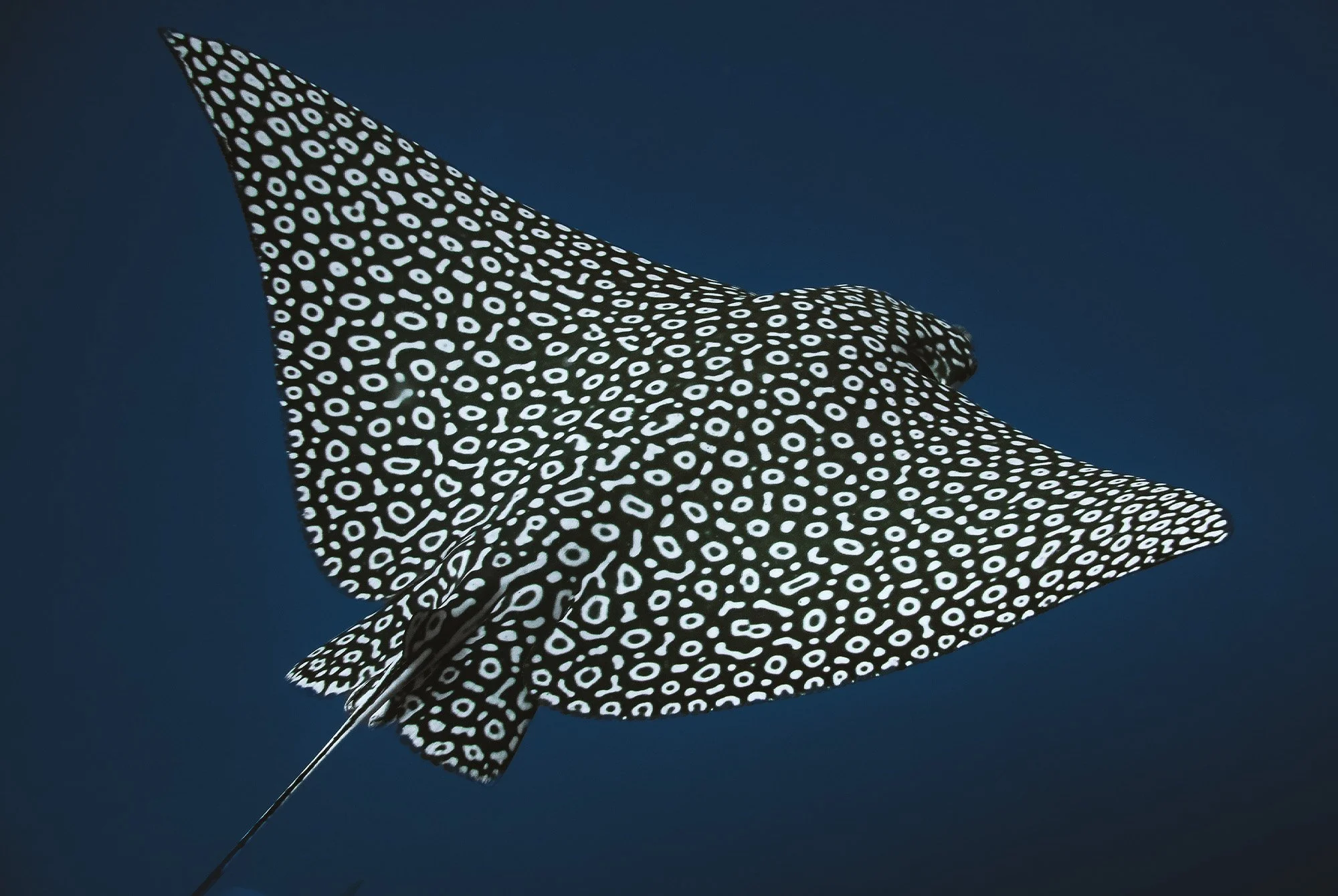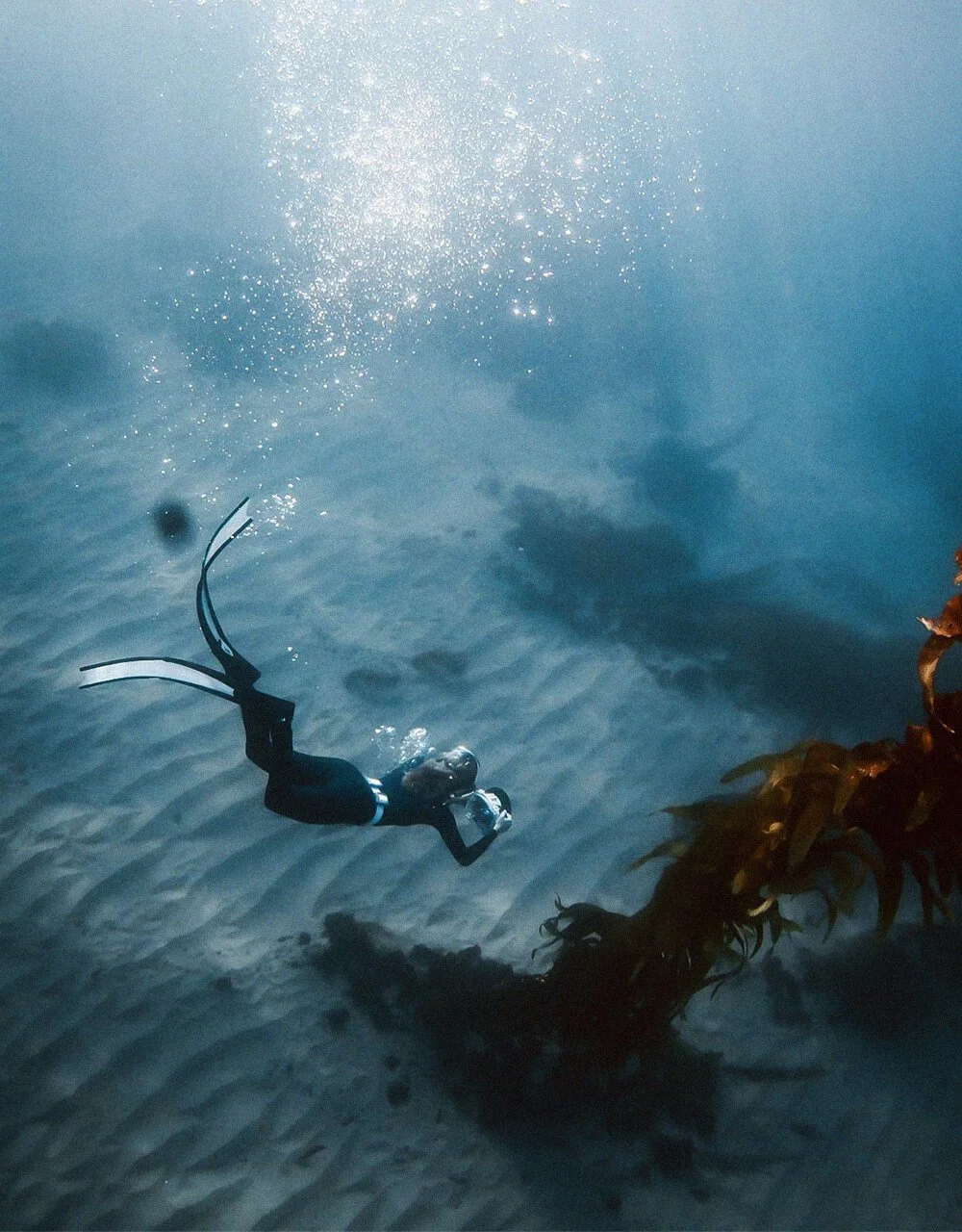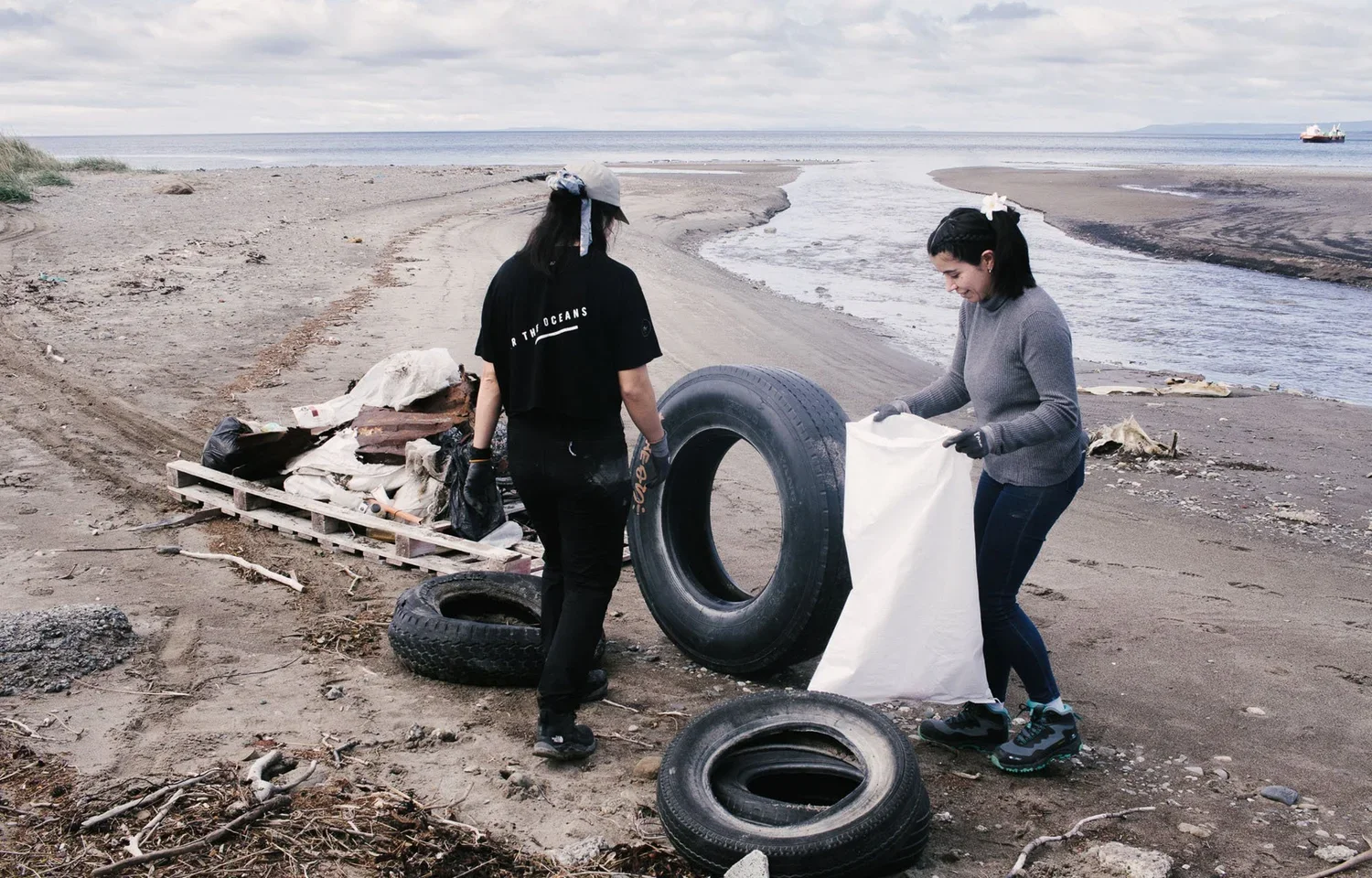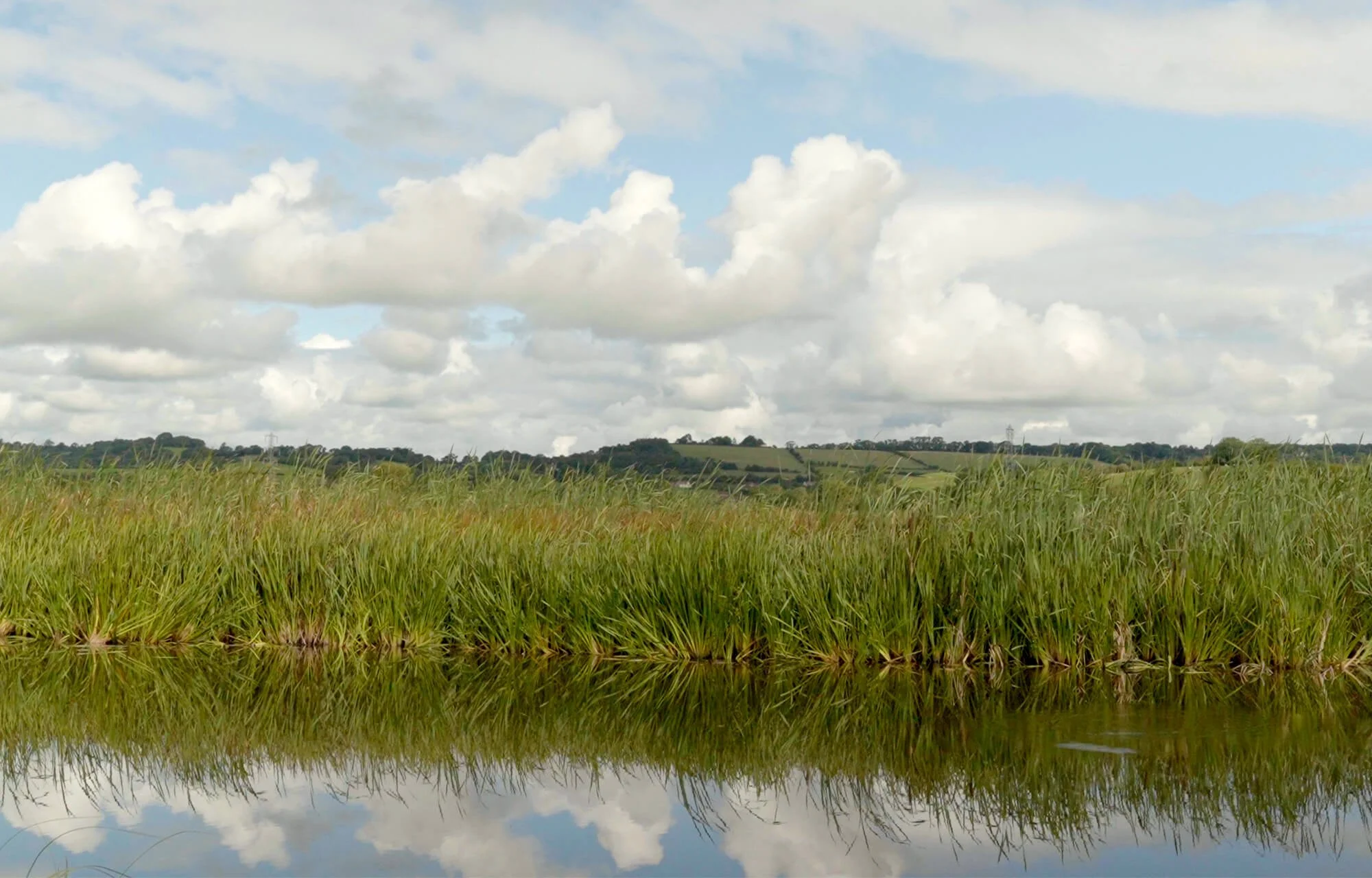Meet Joshua Farinella, “The Ed Snowden of Seafood”
Joshua Farinella thought he was moving to India to secure his family's future, but what he saw while he was general manager of a shrimp processing plant changed the trajectory of his life
Joshua Farinella thought he was traveling to India for his dream job. Although it hurt to leave his family behind, when seafood producer Choice Canning approached him to become the general manager of a shrimp processing plant in Andhra Pradesh on double the money he was currently earning, he felt it was too good an opportunity to turn down. He could see retirement in the near distance and security for his family. The five years would be hard, he reasoned, but worth it.
Farinella is experienced in the seafood industry and considers himself good at his job. What he saw in his short tenure working for Choice Canning – just five months – shocked him and led to him blowing the whistle on the horrendous conditions workers were suffering in – shrimp pumped with antibiotics and staff earning less than minimum wage. He approached Ian Urbina and the Outlaw Ocean Project, who ran an explosive story containing video, text messages and emails that point towards systemic issues at the plant, one that that senior management and owners were all too aware of. This isn’t an isolated case in the world of seafood – Urbina’s tireless reporting on industrial fishing paints a picture of a brutal world in which neither fish nor humans are treated with dignity.
In a follow up interview, Cyrill Gutsch spoke with Farinella to dive deeper into his time working in India, his reflections on the experience and what’s next for the “Ed Snowden of seafood.”
Joshua Farinella
Q & A
Cyrill Gutsch: Tell me – who is Joshua Farinella?
Joshua Farinella: At the end of the day, I’m a guy from a small town in Pennsylvania. When I was growing up here in the town of Pittston it had a population of about 10,000 people. I got involved in seafood ten or so years ago. The career progression led me to the point where Choice (Canning) called me back and said, ‘hey, come on over to India.’
Cyrill Gutsch: You went to Andhra Pradesh and they offered you a dream job, right?
Joshua Farinella: They did. For me, that was essentially life-changing. I was going to go over there for five years and have next to no living expenses. Then at the end of that five years that would put me and my family in a very good position to either be retired or semi-retired – at least a lot more comfortable.
Cyrill Gutsch: How old are you now?
Joshua Farinella: 45. That was the retirement plan. That was my daughter's college fund.
Cyrill Gutsch: How long did you stay?
Joshua Farinella: I was only there for just under five months – I still never got my last month's pay from India.
Cyrill Gutsch: How did your family react when you decided to walk away?
Joshua Farinella: I had a lot of conversations with my wife about what the situation was and as hard as it is to throw that kind of money away…she even said it before I suggested that I needed to get out of there and do something about it.
Cyrill Gutsch: When was that moment where you knew that you had to do something about it, even if it meant risking your career?
Joshua Farinella: It was a culmination of several issues that kept popping up. Every time I would question them it would always be, ‘oh it's just a misunderstanding’ or ‘it's okay’, or ‘just go ahead and do it.’ It got to the point with those misunderstandings where it really became evident that they were just a pattern of ‘who cares.’
Cyrill Gutsch: Is it a very planned and well organized way of running an exploitative business at the cost of people?
Joshua Farinella: It seemed to be pretty well planned in terms of the food safety and the contaminated antibiotic positive products that were being shipped. There was never a pause from the ownership after I raised something to think about what they should do or shouldn't do. It was always just an immediate ‘yeah, go ahead.’ They knew they were playing the odds with products being shipped over to the US, as it's super unlikely that anybody would ever catch it.
Cyrill Gutsch: You worked in a massive industrial shrimp farming business. Were the business practices that would be certified on paper by auditors very different from the reality you found when you worked there?
Joshua Farinella: Yeah, absolutely. The auditors can only audit what they're shown. So there's a set of paperwork that you show the auditors that say everything's perfect. Then there's a set of paperwork that shows the way things really are. And they're completely different from each other.
Cyrill Gutsch: So they hire an external auditing firm – the auditing firm comes in, makes an internal audit report, and then there’s a cosmetic version of that for external use?
Joshua Farinella: Yeah, the external facing audits are done on an annual basis. They're there to maintain your certifications with the customers and that's what's distributed to everybody. Those are the audits where they're shown one set of paperwork that says everything's exactly how it's supposed to be. When in reality it's nothing like that.
Cyrill Gutsch: Do you still trust certifications?
Joshua Farinella: I trust in the idea of certifications. The companies that own these certification standards want to do the right thing. But the companies that own these standards aren't the ones that are performing the audits themselves. Those are subcontracted to other companies that do it. And 99% of them want to do the right thing. Unfortunately, I wound up in that 1%.
Cyrill Gutsch: So, explain quickly. You come, you arrive in Andhra Pradesh. Remind me of the town that this facility was in.
Joshua Farinella: The town was Amalapuram. I lived right in the town in a little apartment. It's a small town, so I don't know if you'd say there's a downtown area but if there was, that's where I lived.
Cyrill Gutsch: How was the business run? You described floods of workers coming in. I saw a comparison with an airport. You describe very poor living conditions. And you also described that workers were not able to leave the compound when they wanted to. Can you just explain how life feels and what are the life circumstances of workers in such a compound?
Joshua Farinella: They have the migrant workers that live on site. There's over 650 of them. The only living space that they have is their bunk area, if they're lucky enough to have a bunk. Several of them just sleep on a dirty mattress on the floor. Some of them have to share a bunk. If somebody was working on the day shift, then that night shift worker would get to use the bunk. And then when the night shift worker went to work, the day shift worker would get to use the bunk. They don't have any kind of recreational areas there. Pretty much the only space they have is a very small bunk area, and it's very crowded. There are toilets and showers, but not enough for the number of workers that are there. There's enough toilet and shower areas for about 250 resident workers. But again, there's over 650 there, so that gets a little problematic.
Cyrill Gutsch: You mentioned that pay was below the minimum wage, which is, I think you said, $5 per day in Andhra Pradesh...
Joshua Farinella: There was a point where I was trying to renegotiate the wages for the workers – they were being paid 350 rupees per day. I offered to increase that to 400 rupees per day. And then I found out shortly after that I had to increase it to 450 because that's the minimum wage. I got a hold of the owners and I said, ‘How do you want to handle this? They're not even being paid minimum wage now.’ The owner, the managing director, quickly sent out an email saying he was outraged. Choice Canning always pays what it's supposed to and the workers are always paid on time. Right after that, the VP of HR chimes in and copies the legal team saying ‘Sir, we paid everybody exactly how you told us to because you said we weren't going to be here that long.’ And at the time of that email, Choice has been in that facility for about two years.
Cyrill Gutsch: Does the firm make a lot of money?
Joshua Farinella: About $80 million in sales last year.
Cyrill Gutsch: With 650 workers…
Joshua Farinella: That's 650 migrant workers who live on site. There's an additional four or 500 local workers who are there every day.
Cyrill Gutsch: So it's 1,100, 1,200 workers. Do you think they have enough margin profits that they can actually pay their workers or does it feel like they're fighting for survival and that's why they can't pay anyone?
Joshua Farinella: Well, to give you an example, the guy who's the head of the whole shrimp division for Choice Canning, his salary was about 10% of my total salary for going over there. So if they were able to pay me $300,000 a year, they could pay the regular workers.
Cyrill Gutsch: Earning $3.50 or $5 a day is nothing. That's like $100 a month.
Joshua Farinella: Roughly, yeah.
Cyrill Gutsch: So they could actually hire a lot of workers for your salary?
Joshua Farinella: Absolutely, they could have staffed that factory with my salary and paid them well.
Cyrill Gutsch: Why did they pay you so much? Why did they get an American seafood expert to India to run that place?
Joshua Farinella: I really can't give a definitive answer as to why. I mean, at the time that they made the offer, it was life changing. And I wasn't about to look that gift horse in the mouth, even though it kind of turned into the Trojan horse. Pride says they paid me well because I'm really good at what I do.
Cyrill Gutsch: So there's this moment where you feel like this is not fair, this is not right. What happened next?
Joshua Farinella: I already knew of Ian Urbina and the Outlaw Ocean Project, so I reached out to Ian and gave him a hypothetical situation – if I told you that all of these things were happening, what would you say? We took it from there.
Cyrill Gutsch: And then you started documenting. I can call you the Ed Snowden of the seafood industry! How did you accumulate all that proof, all that evidence?
Joshua Farinella: It's all so blatantly done over there that I didn't have to really look for any of it. We're talking about documenting some of these illegal activities just in WhatsApp messages, with the same casual attitude that I go to the gym and say, ‘hey, how's it going’ to whoever's on the treadmill next to me.
Cyrill Gutsch: There were some code words, right? You described that there were antibiotics used to treat the shrimp, which is something that is simply not allowed. So they called it Oscar, right?
Joshua Farinella: Oscar was the word, because you could explain Oscar as being anything if someone were to question it. If you show a text message that says, ‘hey look I've got antibiotic-positive shrimp’, well you can't hide that. That's how the term Oscar came about.
Cyrill Gutsch: Why would you use antibiotics? Just for people who don't know.
Joshua Farinella: They're used by farmers to control their costs as they'll get a bigger harvest and they'll have a lower mortality rate among the shrimp. It'll control diseases in the pond. But those antibiotics are not approved by the FDA for human consumption. The FDA cites carcinogenic effects as a result of people consuming them. It's a situation where they're putting profits over the health and wellbeing of the people who are actually paying for those products.
Cyrill Gutsch: So they have no respect for the workers, they have no respect for the clients. How do they treat the shrimp?
Joshua Farinella: By the time the shrimp gets to the factory they've already been killed. When they're harvested, there's just the net, the pond is dredged, and then from being out of the water and then into the ice bath that they get, that's what kills them.
Cyrill Gutsch: How would you describe the hygienic conditions under which these shrimps were processed by the workers. I saw ugly photos.
Joshua Farinella: In those pictures and some of those videos, you're actually seeing external peeling sheds. They're completely off the books, they're unregulated, nobody audits them. They're just open air sheds, almost pavilion-like. The workers don't have to wear any of the standard personal protective equipment that you would wear in the factory itself. They just wear their street clothes. You have to realize that it's a poverty-stricken area. So the clothes that you're wearing today, you may have slept in them, you might have worn them for the past several days. That's what's being worn when that shrimp is being processed. The tables that the shrimp's being peeled on, there's plenty of rust on them. There's inadequate ice coverage for the shrimp. It's raw seafood, it needs to be kept chilled. There are a huge number of potential food safety problems that arise from that.
Cyrill Gutsch: When you pointed towards these issues, what was the reaction of your bosses?
Joshua Farinella: Just keep the product coming. It's all about getting that product out of the door.
Cyrill Gutsch: How much shrimp would leave that factory per month?
Joshua Farinella: Roughly 40 full container loads at about 33,000 pounds each.
Cyrill Gutsch: And that went mostly to which kinds of countries?
Joshua Farinella: Almost 100% of it is destined for the US. There's one customer in Canada, but they don't take large amounts.
Cyrill Gutsch: Are there any retailers, any grocery shops, supermarket chains that you recall selling that exact product?
Joshua Farinella: Just about all of them. The customer base includes just about every major retail chain in the country.
“It's all so blatantly done over there that I didn't have to really look for any of it. We're talking about documenting some of these illegal activities just in WhatsApp messages."
Joshua Farinella
Workers eating in the kitchen
Cyrill Gutsch: Why do these customers trust that vendor?
Joshua Farinella: This goes back to the audit certifications saying everything's great. And in a lot of cases, well, most cases, that's what you base it on. When you're pitching yourself to a new customer, you bring those certifications right out and say, ‘look, we're compliant with everything.’
Cyrill Gutsch: What can go wrong when you have this shrimp in a supermarket?
Joshua Farinella: A lot of things. Side effects from consuming the antibiotics to things like E. coli, salmonella, a lot of things that can make a lot of people sick.
Cyrill Gutsch: How would someone be able to recognize that this piece of shrimp is not good for them?
Joshua Farinella: You can't. These are all bacteria, microorganisms. You have to trust who you're buying it from and who they bought it from.
Cyrill Gutsch: So trust is really the key here, right? The customer in a supermarket trusts the supermarket. The supermarket trusts a certificate and a vendor. And then the vendor uses that trust to sell a product that is not ready for sale.
Joshua Farinella: Yes.
Cyrill Gutsch: What is the ideal outcome of you blowing the whistle?
Joshua Farinella: The ideal outcome is for a change to happen. My end goal is that this changes from the beginning to the end of the supply chain. The suppliers need to treat their workers like human beings. They need to supply products that are healthy, that won't get you sick. The vendors or those customers need a better way of verifying these things. And at the end of the day, when people go grocery shopping, it should never cross your mind when you're looking at a bag of shrimp, ‘I wonder if this is gonna get me sick today.’ You should never have to think that, ever.
Cyrill Gutsch: A story like yours has the potential to exactly provoke that thought, right? That people in a supermarket would start asking questions, would start being careful and the media would call it out.
Joshua Farinella: Yes, and that's absolutely what needs to happen.
Cyrill Gutsch: When you think of the buyers from that company, what would your message be to them
Joshua Farinella: You know, kind of a buyer beware. All of these buyers have the ability to research where the product is coming from. They have the ability to source from other places that don't have issues like this. If the producer actually wants to do the right thing, there's nothing stopping them from doing that.
Cyrill Gutsch: It would secure their survival, right? Who wants to work with a company that is betraying the trust of their workers, their buyers and the end consumer?
Joshua Farinella: Correct. Part of what I would like to see is a company actually do the difficult thing, which is say ‘Hey, we were wrong. This is what we're doing to fix it.’
Cyrill Gutsch: Did they get back to you?
Joshua Farinella: No. There was a text message that I got once my flight landed back in the US here from one of the owners, saying they were sorry things didn't work out. You know, give me a call so we can ensure a smooth transition. But that was it. I did not return that message. I didn't call back.
Cyrill Gutsch: Do you think this will have any consequences for the company?
Joshua Farinella: I hope so, because that's the only way you learn.
Cyrill Gutsch: Do you think this is like something that is happening more often or is this a unique example of some owners being especially greedy and ruthless?
Joshua Farinella: I'm not entirely sure how widespread the issues are throughout the shrimp industry, but I do know that the two other reports that were published last week seem to back up what I witnessed at Choice. They seem to say it's a widespread issue.
Cyrill Gutsch: And that is also one of your effects of the story that you broke – so other people would stand up as well and would speak about their conditions, about their experiences.
Joshua Farinella: Yeah. And unfortunately, well, fortunately for me, being able to come back to the US and to come home here, it makes it easier for me to blow the whistle on this and to actually talk about it publicly. Whereas most of the people that are over in India working in these conditions, they're not capable of doing that.
Cyrill Gutsch: Was there a moment where you were worried about your safety?
Joshua Farinella: There were a couple of moments, but maybe it was just paranoia on my part. There was an instance where I went to one of these peeling sheds and then when I was on the way back to my apartment, my wife was in India with me at the time. She was at the apartment and she sent me a picture right outside the apartment where there was what looked to be a small military unit out front. Now keep in mind, I would see police officers every day in my travels to and from work and none of them are armed. No firearms, didn't have a baton, handcuffs, anything. They always had a whistle. And then my wife sends me this picture outside of the apartment where these men in their camouflage uniforms with automatic weapons over their shoulders, and they just happen to be there as I'm coming back from one of these peeling sheds.
Cyrill Gutsch: What are you doing next?
Joshua Farinella: I just accepted another job this morning. I really wanted to be able to stay in the seafood industry, but that doesn't seem like a viable option at this point. I'm still in the compliance and quality assurance field, just a different sector of food manufacturing.
Cyrill Gutsch: Do you think people don't want to work with you in the seafood industry anymore?
Joshua Farinella: As large of an industry as seafood is, everybody knows everybody, right? It’s a situation where I'm pretty sure, even if I sent out a hundred resumes this afternoon, I would not get a call back.
Cyrill Gutsch: Josh, is there anything else you want to mention at this point?
Joshua Farinella: I don't think so. I just want to say thank you for taking the time to look into this and help other people see what's really going on.
Cyrill Gutsch: I think you had courage, risking a really fantastic job. Most crimes against humans – and also against the environment – happen because people keep taking the money.
Joshua Farinella: Correct. When you asked if I thought something should happen as a result of this, or if there should be a consequence, that's why I say there should be a consequence. Nothing happens until you hit somebody in the wallet.
“The suppliers need to treat their workers like human beings. They need to supply products that are healthy, that won't get you sick."
Joshua Farinella
Security guard outside dormitories
Video and photography courtesy of Ben Blankenship and Joshua Farinella, via The Outlaw Ocean Project






